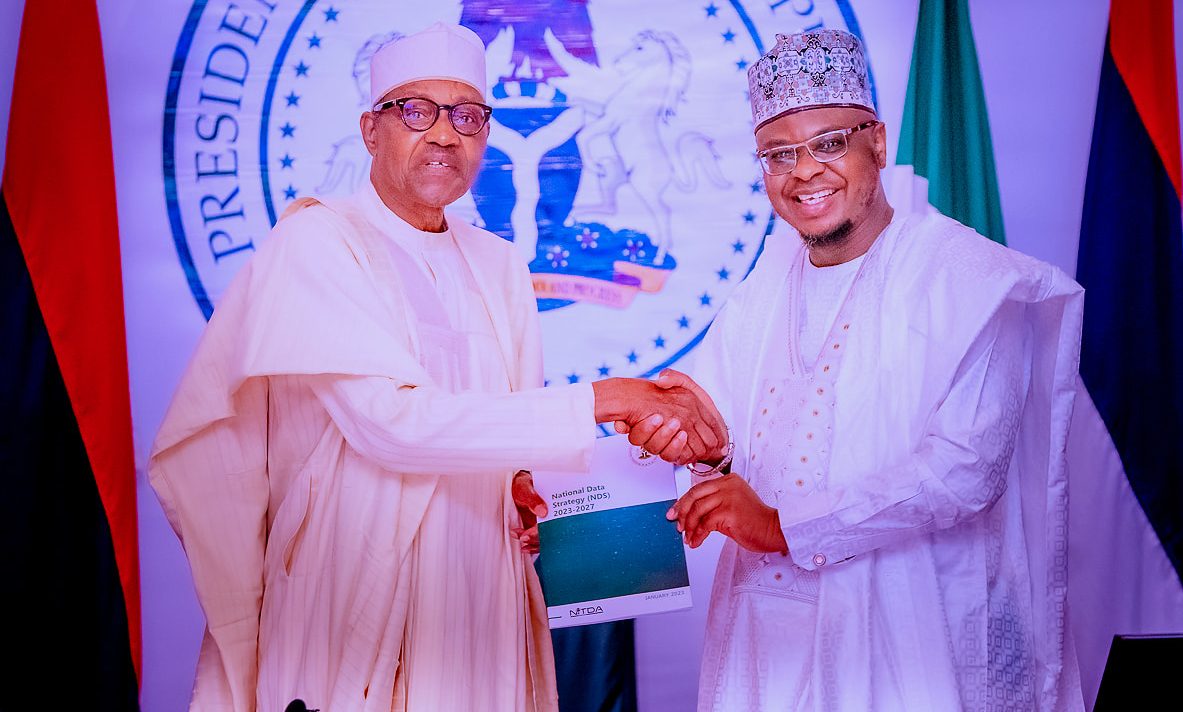President Muhammadu Buhari has said that the digital economy sector has been most successful in the diversification of the nation’s economy, saving the Federal Government over N45.7 billion in IT projects clearance.
The president stated this Thursday at the State House, Abuja, when he unveiled and launched two new policies developed by the Ministry of Communications and Digital Economy, his Special Adviser on Media & Publicity, Femi Adesina, said.
Linking the two policies to the diversification and prosperity of the economy, Buhari said the National Policy on the Nigerian Government Second-Level Domains and the National Data Policy, are central to accelerating the development of the nation’s digital economy sector, adding that this administration would continue to develop policies and programmes in furtherance of the diversification of the economy:

“In the last three and a half years, we have intensified the development of policies, design of programmes and implementation of projects in the digital economy sector and the impact has been very impressive.
“For example, we have succeeded in diversifying our economy to a large extent and this is obvious when we consider the contribution of the ICT sector to our Gross Domestic Product (GDP) in the second quarter of 2022 which stood at 18.44%, compared to the contribution of the oil sector to the GDP which was 6. 33% in the same period,” he said.
Read Also: How fragile borders fuel terrorism, economic sabotage, illicit flow of arms – Buhari
The president noted that Nigeria’s strides towards a thriving digital economy started on October 17, 2019, with the redesignation of the Ministry of Communications and Digital Economy and the restructuring of its mandate, stressing that the changes have been phenomenal.
“We are proud of the great strides of our digital economy sector and the impact it has had on the different sectors of our economy and I commend the Honourable Minister for being committed to the implementation of the digital economy mandate.
“As part of our commitment towards ensuring the sustainability of our gains in the digital economy sector, we have taken steps to institutionalise the process by developing relevant policies and strategies,” Buhari further stated.
According to him, a total of 21 new national policies and strategies have been developed by the Federal Government since 2019, adding that ” the policies and strategies are national instruments to support Nigeria’s digital economy at the national and sub-national levels. The national policies have led to significant development across all sectors of our economy.”
On the issue of digital identity for the country, President Buhari declared that the present administration has actively promoted it as key to a sustainable and secure development of our digital economy which will ultimately promote the use of the right identity by all Federal Public Institutions.
While noting that “the National Policy on Nigeria Government Second-Level Domains is a welcome step in this direction,” he directed that all government officials should refrain from using private emails for official purposes and Federal Public institutions (FPIs) must migrate their websites to the relevant government domains.
On the recent deployment of Starlink services by SpaceX in Nigeria, first of its kind in Africa, the President expressed his delight, declaring: “We are glad that Starlink services are already deployed in Nigeria. This has made Nigeria the first and only African country to have this link. With the deployment of Starlink services in Nigeria, we have 100 percent broadband penetration in Nigeria.”



 Premier League
Premier League